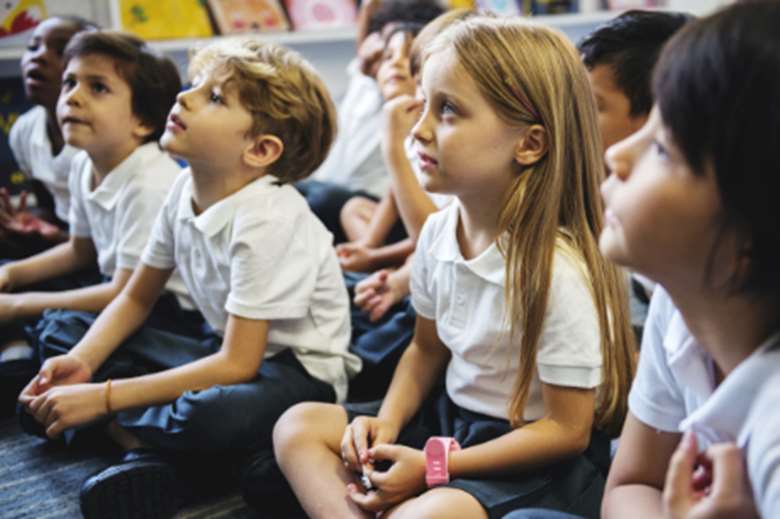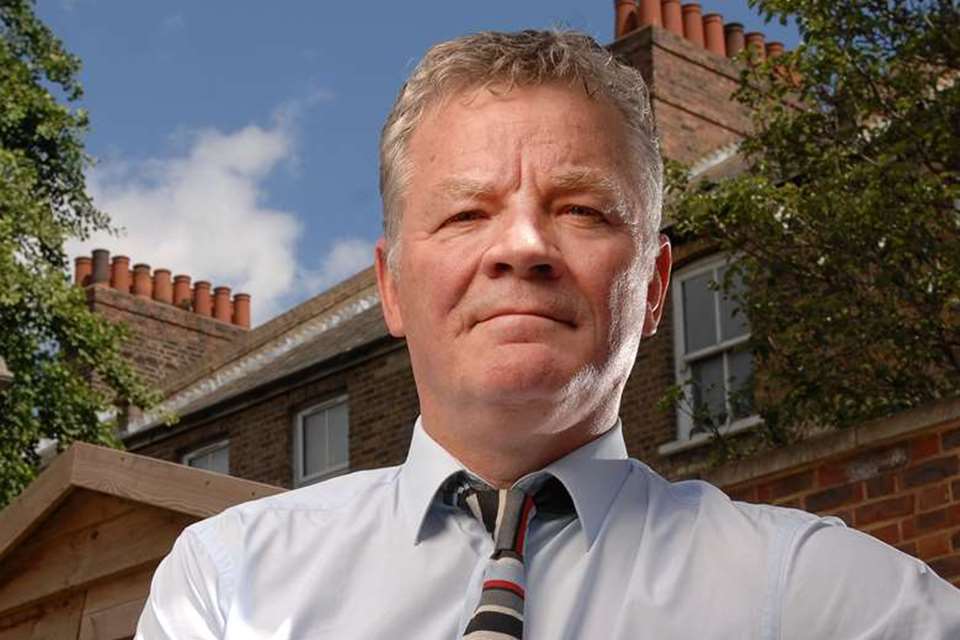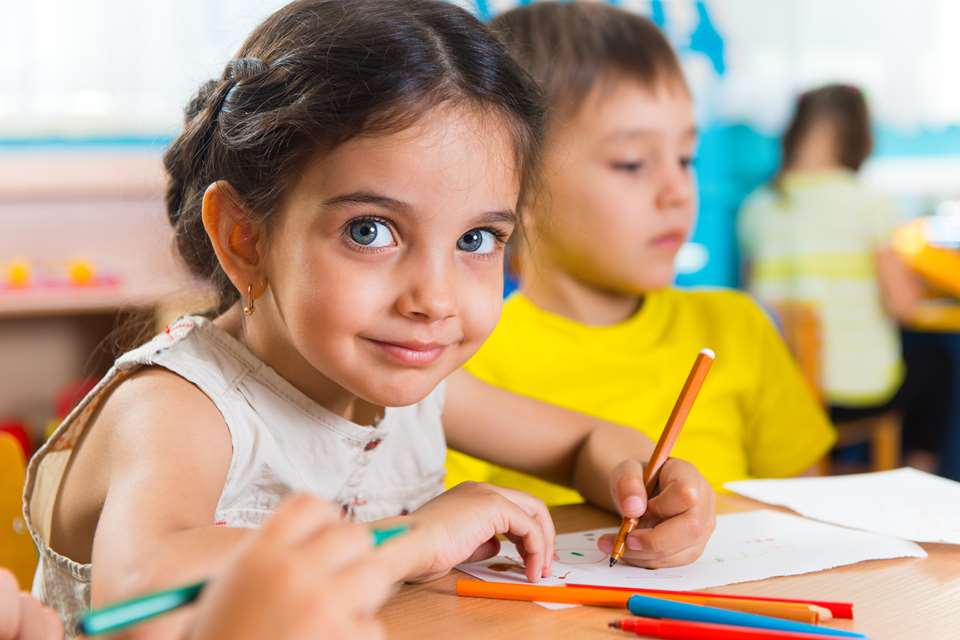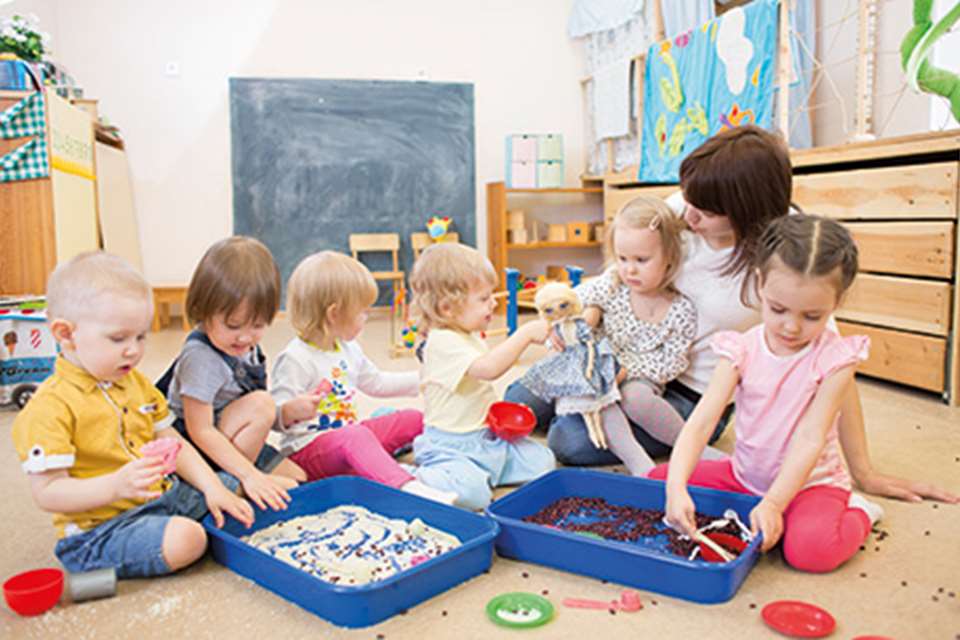Huge numbers of children starting school developmentally delayed - study
Catherine Gaunt
Thursday, March 10, 2022
Around half of four-year-olds were ‘not ready’ to start Reception last September, according to a new survey by education foundation Kindred Squared.

According to a You Gov survey based on a sample of around 900 teachers and staff many children starting school last September were not toilet trained, struggled to socialise with other children, express themselves, or understand basic instructions.
The survey of teaching staff, head teachers and deputy heads working in primary schools in England, found ‘alarming levels’ of pupils being unprepared for school.
Kindred Squared (Kindred2) said that the aim of the research was to start a new national conversation about early years and the key principles of early child development and neuroscience, making the overall point that as a society we need to rethink childcare and teaching at that stage of life.
Leading figures including the children's commissioner for England, Rachel De Souza, education select committee chair Robert Halfon MP, Sir Peter Lampl, founder and chair of the Sutton Trust and chair of the Education Endowment Foundation, as well as early years sector organisations are calling for the Government to prioritise early years catch-up.
The Government has faced criticism for focussing the vast majority of catch-up funding on older children, with just 3 per cent allocated to the early years.
According to the findings 88 per cent of primary school teachers and teaching assistants reported having to spend extra time with those not achieving their developmental milestones, meaning that they had less time to spend with the rest of the children in their class.
- 90 per cent of teachers surveyed had at least one child in their class who was not toilet trained
- 91 per cent of teachers surveyed had at least one child in their class who did not have basic language skills (i.e. cannot say their name, answer questions, etc.)
- 97 per cent of teachers surveyed had at least one child in their class who did not know how to listen or respond to simple instructions.
Vicky Hogg, headteacher of Clements Primary Academy in Haverhill, said, ‘None of our children in Reception this year were developmentally ready. In the previous year, only one was developmentally ready.'
However, she said she did not think this was due to the pandemic.
'Covid has been a great challenge for us all, but the school readiness crisis isn’t a Covid issue. It’s been getting worse: previously 75 per cent might not be ready for school but in the last couple of years there might only be one or no children ready.’
The lack of school readiness also leads to ‘a great financial cost’ to schools, she added.
‘We have a speech and language specialist assistant five days a week to provide support. We have to pay three full time members of staff to enable nappy changing, to support the behaviour challenges and meet the huge level of need some of the children present who just can’t cope.’
The findings are based on an online survey of 971 primary school teachers in the UK, including 229 head teachers and deputy head teachers.
Felicity Gillespie, director at Kindred2, said, ‘The YouGov survey suggesting half our children are starting their school journey at such a disadvantage is shocking, particularly as we know what an impact being behind at this point has on later life chances.
'Mental health, literacy, earning potential are all being impacted. Some will blame parents but we all want the best for our children and teachers say what isn’t being made clear enough to parents is what being developmentally ready for school actually means.
'We need a new national conversation about parenting and the state’s role in our children’s development – one that reflects the irrefutable scientific proof that brain development pre-school is as important as school-based education.'
Comments from teachers who took part in focus groups for the survey, highlight the extent of the problem:
‘We always have a significantly high proportion of children who are not school ready, about 50 per cent, this year it's probably 80-90 per cent.’
Teacher - West Yorkshire
‘More pupils this year are not fully toilet trained. More pupils in the Reception cohort have speech and language issues.’
Teacher - West Yorkshire
‘We're finding that children are starting school still in nappies with no attempt being made with toilet training. This is making it extremely hard in our school having a mixed Reception/ Year 1 class where the teaching assistant needs to keep leaving to help those children.’
Teacher - South West
‘In my school we have found our younger children are lacking in social skills in particular. Children are finding sharing, peer relationships and even interactions with adults extremely difficult.’
Teaching Assistant - West Midlands
‘Covid has meant that parents haven’t had the access to any groups that may have been available to share thoughts or issues they may have parenting, and this lack of communication for parents of early years children is key. They have missed out on talking to other parents as well as many professionals.’
Primary School Teacher - East Anglia
Call for early years catch-up
Robert Halfon MP, chair of the Education Select Committee said, 'Lockdown and schools closures has not just had a dramatic effect on school children in terms of the education, mental health, safeguarding risks and life chances, but also for younger children who haven’t even started school yet. Ofsted have recently reported that some of the hardest hit children had “forgotten how to eat with a knife and fork, or lost their early years progress in numbers and words”.
‘Prioritisation must be given to early years support and there needs to be a catch-up programme specifically designed to support families and nurseries to teach children practical and social learning, as well as better support their educational development. We should also provide better parental engagement and look at the examples of schools across the country who are working with parents to become mentors to other parents in the area.’
Children’s Commissioner Dame Rachel De Souza said, ‘We know the vital importance of a child's early years. It's always crucial to hear from the professionals working with very young children. They are clearly highlighting the effect on pre-school children the pandemic is having, as well as on those who did not have access to the classroom during it.’
Sir Peter Lampl, founder and chair of the Sutton Trust and chair of the Education Endowment Foundation, said, ‘Today’s report shows that when children miss out on access to early education and opportunities to play and learn with their peers, it puts them at a huge disadvantage. This is having knock-on effects in schools, at a time when teachers are already stretched with recovery from the pandemic.
‘So as to give every child a fair start, there has to be a major focus on the early years, with support for the most disadvantaged children to develop before they start school. But under the current system, the poorest three- and four-year-olds are locked out of accessing crucial government-funded early education. This needs to change. Today’s report documents the need for low-income children to have access to high-quality early years provision.’
Sally Hogg, First 1001 Days Movement, said, 'This survey demonstrates that we, as a nation, are failing nearly half of our children who start school already at a disadvantage. These shocking results show that it is time for Government to make early childhood a priority.’
Neil Leitch, chief executive of the Early Years Alliance, said, ‘Many young children have now spent much of their lives under some form of Covid-19 restrictions, missing out on vital opportunities to socialise with their peers and develop key skills.
‘We know how vitally important the early years are for children’s future learning, so it is sadly not surprising that we are now seeing an increasing number of them facing additional challenges. With just 3 per cent of the education recovery funding announced so far going to the early years, the Government is missing a huge opportunity to address these concerns before children start school. We urge the Government to give early years providers the support they need to deliver the quality early education and care that will help children recover from the difficulties they have faced during the pandemic.’
Purnima Tanuku, chief executive of the National Day Nurseries Association (NDNA), said, ‘Sadly we have read reports with similar conclusions to the Kindred Squared one over the last few years.
'We keep emphasising that educational recovery starts with early years education. Money invested in a child’s foundation years has the biggest impact in their lifelong educational journey.
'The Government simply has not invested enough in early years and this is now showing with some children starting school without basic communication and social skills.
'One effective measure the Government can implement straight away would be a meaningful increase to the Early Years Pupil Premium to align it to the same rate as the Pupil Premium, which is about £1000 more. This would help those from the most deprived backgrounds have access to high quality early education and support with their developmental needs.'
Last year, the Government announced package of up to £153m for Early Years recovery over three academic years from September 2021, and a £10m Professional Development Programme to support pre-school children’s language, numeracy and social skills.
A Department for Education spokesperson said, 'We recognise that the early years of a child’s life are crucial, which is why we’re investing millions in early years recovery over the next three years, including programmes focused on improving children’s speech, language and communication skills, alongside better training and support for staff working with pre-school children.
'We are championing Family Hubs, backed by £82 million, where parents can access important services for families with children of all ages, with a great Start for Life offer at their core. This is part of a wider £300m package to transform services for parents, carers, babies and children in half of council areas across England.'









